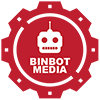The employment process has been changed by AI-generated resumes, which use the capabilities of artificial intelligence (AI) and natural language processing (NLP) to evaluate large amounts of data and design resumes that are well-structured. The resume-writing business might be significantly impacted by these technologies, but at the same time, they present a number of issues that need to be carefully considered. AI resumes may not be as accurate or relevant as human-written resumes, since they are taught on vast datasets of resumes, but they may not be able to capture the subtleties of human language or the special needs of a given job. This is because AI resumes are trained on large datasets of resumes.
There is a continuing need for professional resume writers who are able to produce resumes that are not just factual but also relevant and individualized. Resumes created by AI have a number of benefits, including the ability to be generated rapidly and without much effort, to be personalized to a particular position, and to identify individuals who are qualified. On the other hand, AI resumes could lack the human touch and sensitivity that are brought to the table by human recruiters. In many different types of jobs, it is important to possess “soft skills” like good communication, emotional intelligence, and the ability to work well with others, which are best appraised by human recruiters.
There is a possibility that AI systems would struggle with the evaluation of soft skills, which are vital for many occupations. Because soft skills are intangible attributes that may have a substantial influence on work performance, conducting an accurate assessment of soft skills throughout the recruiting process is essential. AI-generated resumes may have difficulty comprehending the intricacies of a job application’s human element, such as a candidate’s enthusiasm, drive, and cultural fit. These are qualities that are frequently better understood by human recruiters during interviews and other contacts with candidates.
The extent to which a firm will accept and make use of resumes created by AI varies from business to business and is impacted by a variety of criteria, including company size, industry, and recruiting processes. Candidates for jobs should place an emphasis in their resumes on showing both their hard and soft abilities in order to increase the likelihood that they will be hired. During the preliminary screening, AI systems are able to assess and take into consideration both forms of information, which increases the candidates’ visibility.
The effectiveness of applicant screening procedures has been greatly improved thanks to AI-generated resumes. These resumes have helped reduce unconscious bias, enhanced candidate-job matching, expanded talent pool visibility, and provided vital insights for the examination of skill gaps. It is unquestionable that the influence of AI technology on the recruiting and hiring processes will become more significant as the technology continues to improve. Employers and job seekers stand to benefit from the continuous learning and improvement in AI-powered recruitment platforms. As these systems learn from processing more resumes and gathering additional data, they become increasingly accurate in assessing candidate qualifications and predicting potential success in specific roles. This is good news for both groups.

